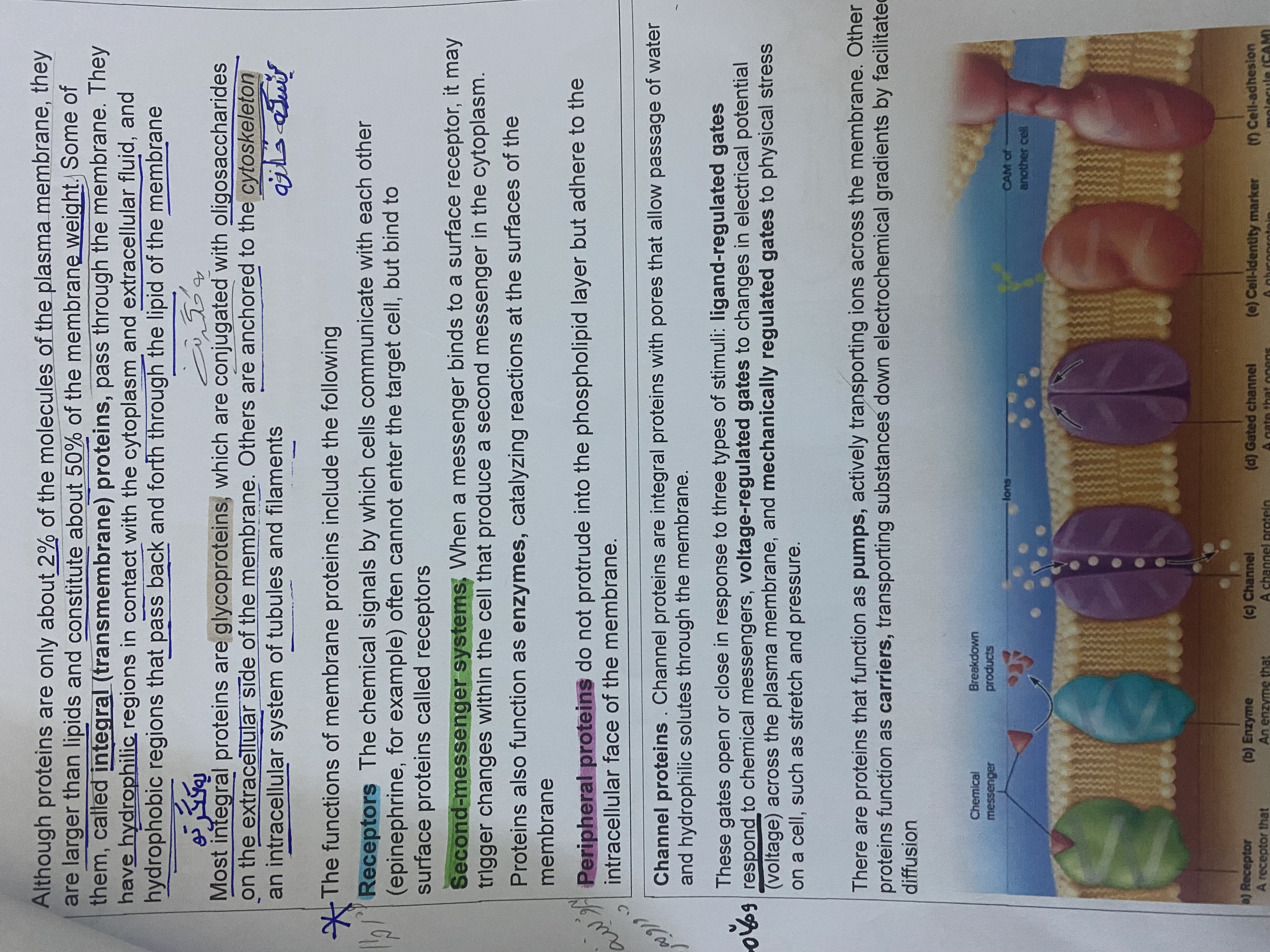What are the functions and types of membrane proteins?

Understand the Problem
The question is likely asking for information regarding the functions and types of membrane proteins as described in the provided image. This includes details on integral proteins, glycoproteins, receptors, second-messenger systems, enzymes, and channel proteins.
Answer
Integral and peripheral proteins have roles in transport, signaling, and structural support.
Membrane proteins include integral (transmembrane) proteins like glycoproteins that facilitate transport, signal reception, and anchoring, as well as peripheral proteins that support enzymatic reactions and cell signaling.
Answer for screen readers
Membrane proteins include integral (transmembrane) proteins like glycoproteins that facilitate transport, signal reception, and anchoring, as well as peripheral proteins that support enzymatic reactions and cell signaling.
More Information
Membrane proteins are essential for numerous cellular processes, including communication and transport. Integral proteins span the membrane and may function as channels or receptors, assisting in the transport of molecules and signals.
Tips
A common mistake is confusing integral and peripheral proteins; remember, integral proteins span the membrane while peripheral proteins attach temporarily.
Sources
- Membrane Proteins - Molecular Biology of the Cell - NCBI Bookshelf - ncbi.nlm.nih.gov
- Membrane Proteins - Definition, Types & Functions - Cube Biotech - cube-biotech.com
AI-generated content may contain errors. Please verify critical information